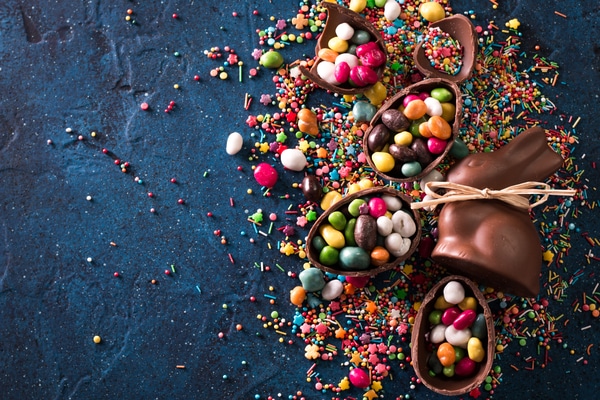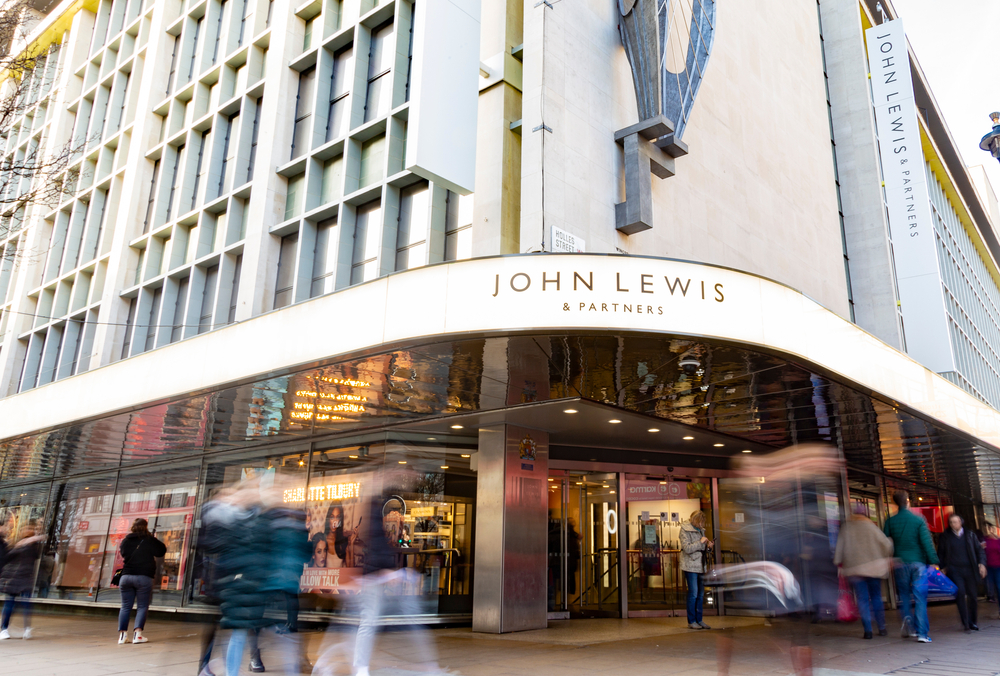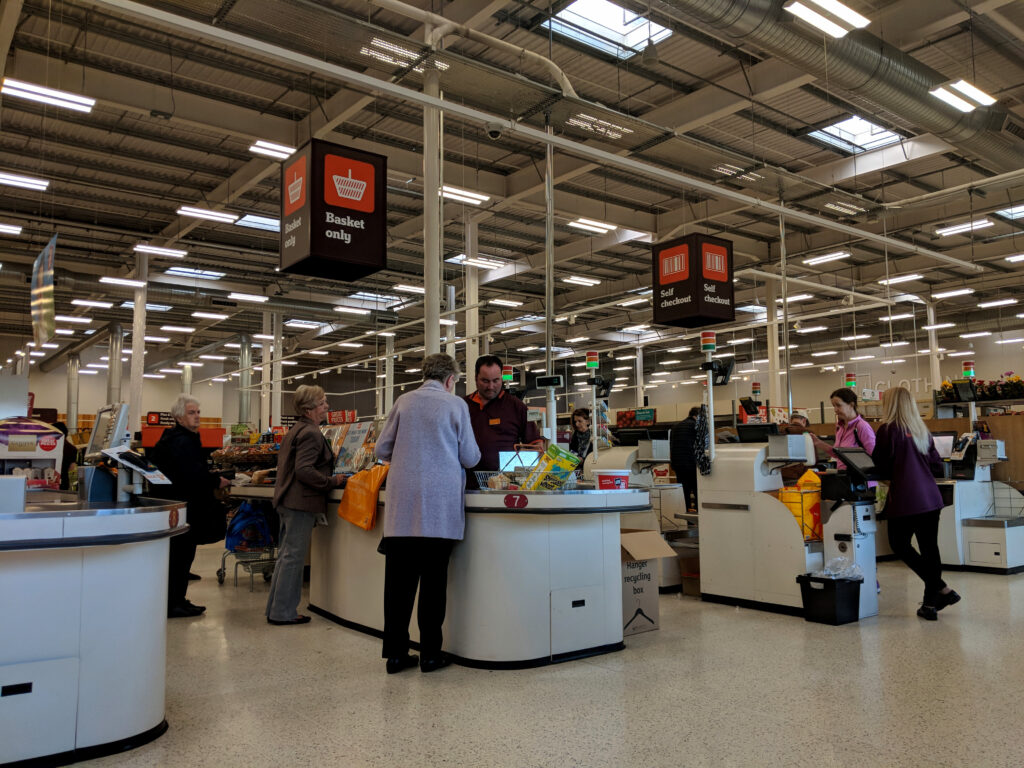Easter is fast approaching and retailers‘ shelves are filling up with chocolate eggs, stuffed bunny rabbits and promotions for Easter Sunday roast dinners.
A near identical process is seen at Christmas as retailers in all sectors gear their promotions and merchandise towards the big day.
These cultural holidays are key dates for the retail sector, so much so that new dates like Black Friday and Cyber Monday are invented to give retailers a marketing hook to attempt to replicate the sales boosts they see.
With multiculturalism, more prominent than ever in the UK, why are traditional Christian holidays, along with American imports like Halloween still so prominent, while major events from other cultures are ignored?
“A fundamental reason is scale,” Fung Global‘s lead UK analyst John Mercer told Retail Gazette.
“There have been enough shoppers to buy into Christian festivals for mass-market chain retailers to promote sales for these events across their store networks.
READ MORE: Could Chinese New Year be the biggest retail opportunity of the last year?
“One calendar event – though it is not a cultural holiday – that has grown substantially is Halloween, and retailers have been making greater efforts to generate spend.
“We think this is indicative of bricks-and-mortar retailers seeking to make more of seasonal events to drive footfall and impulse purchases.”
However, Gregor Jackson, the founding partner of retail design agency gpstudio, believes alternative calendar events are now playing as big a role in retailers‘ years than traditional ones.
“For the consumer, shopping over the Easter and Christmas periods is linked to holidays,” he said.
“But while retail has always been seasonal, the layering over of very many international holidays – religious or otherwise – or globally-celebrated events, is now already playing a vital commercial role of at least equal, if not greater, importance.
“The likes of Ramadan, Eid, Chinese New Year, Black Friday, Thanksgiving and National Singles Day are just a few examples – the latter with staggering reported consumer spending of $17.8 billion (£14.31 billion) in 24 hours.
“It would certainly be wise for retailers not to have too narrow a focus when it comes to these cultural events – but in a manner that doesn‘t result in products simply rotating in a never-ending supply chain cycle, so focused to their brand and consumer.”
“In 2015, the latest full year for which we have UK data, some 325,000 Chinese travelers visited the UK; this compared to 2.2 million visiting France and 2.3 million visiting the US.”
Chinese Golden Week and more recently Chinese New Year are two of the few calendar events that have seen huge success in the UK retail industry, despite the UK being fairly low on the list in terms of Chinese visitors.
But with the devaluation of the pound, Chinese tourism has been a continually increasing source of revenue for retailers as travelers have suddenly found their cash goes much further.
The link between Chinese tourist spend and retailers’ focus on their events is clear, but what is more difficult to determine is the direction of the correlation.
Jackson believes the more retailers focus on the tourist, the more tourists will spend.
“The likes of Harrods would say that there is a correlation between tourists and retailers focus – they take £1 in every £5 spent from Chinese tourists and to capitalise on this have installed Chinese credit card terminals and employ Mandarin-speaking staff,” he said.
Mercer believes that although these events are key for driving tourism to the UK, far more can be done to boost numbers in a time when tourism could be a key economic driver.
“A wealth of evidence shows the importance of the Chinese consumers, in particular to West End London retailers,” he said.
“In turn, calendar events are significant for driving the number of Chinese tourists. For instance, the number of Chinese traveling overseas to any destination during the Golden Week in October 2016 was close to six million, a two-fold increase year over year, according to CNTA (China National Tourism Administration).
“There are opportunities for UK retailers to do more to cater to international shoppers, including Chinese travellers.
READ MORE: Tourist spend tops £750m in December
“In 2015, the latest full-year for which we have UK data, some 325,000 Chinese travelers visited the UK; this compared to 2.2 million visiting France and 2.3 million visiting the US.
“This year, the perceived threat of terrorism is likely to be a depressing force on Chinese visitor numbers to Europe as a whole, and this includes the UK.
“London-based retailers, in particular, must be seen to welcome Chinese tourists. This past Chinese New Year, our London store checks found House of Fraser featuring prominent ‘Happy Chinese New Year’ signage in its Oxford Street store; however, no such message was noticeable next door at John Lewis or at Debenhams.”
Alternative cultural events are becoming increasingly important to retailers who wish to spread out the intense rushes seen over the traditional high-spend periods, or simply replicate them.
Rather than cottoning on to newly-created events or inventing their own marketing dates, retailers have a wealth of already existing dates to capitalise on.
Founder of marketing agency Oban International Greig Holbrook said these can offer great marketing opportunities for retailers.
“In recent years we‘ve seen the rise of artificially constructed events such as Black Friday,” he explained.
“However, it‘s really important to understand that there are many local and cultural events that drive purchasing within specific international markets and these can offer retailers great opportunities.
“Lovers Day, the Brazilian alternative to Valentine‘s Day, on 12th June – the third busiest retail holiday with consumers spending approximately £370m.
“Click Frenzy in May is the Australian version of Black Friday with sales of electronics, clothes, homewares and beauty products.
“Later in the year and one to start planning for now is Diwali (November 19-23). India‘s consumers spent £1.4bn in sales events leading up to Diwali in 2016.”
Click here to sign up to Retail Gazette’s free daily email newsletter


















